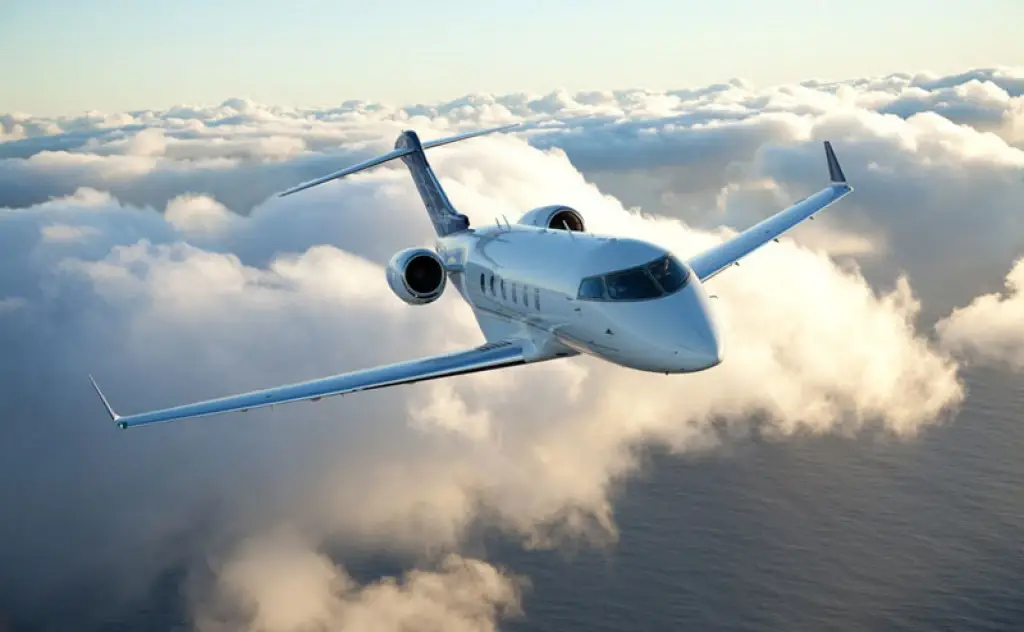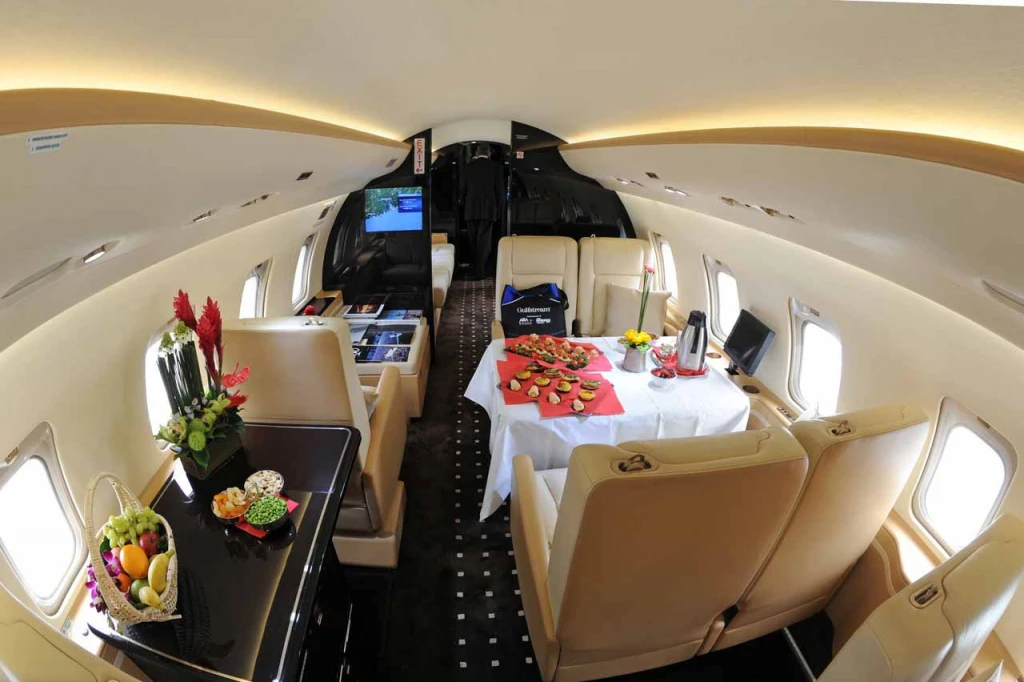Have you ever wondered how do private jet brokers check the safety of private jets? If you did, then you're in the right place! In this article, you'll find out what safety regulations private jet brokers should follow, and much more.
Safety – the Foundation of Air Charter
Private jet charter conjures images of exotic destinations and effortless, luxurious travel, of successful business missions and family reunions — and rightly so. It’s all possible thanks to business aviation’s foundation of safety, which ensures that passengers can enjoy all their travel with complete peace of mind. Safety standards are mandated by strict regulation: No aircraft or crew member can be dispatched, and no operator can offer a charter service, without meeting safety requirements established by the FAA in the U.S., EASA in Europe, or other responsible governing aviation operating authorities.
But safety is not an all-or-nothing proposition, and the quest for it never ends. Many providers focused on safety observe standards above legal or regulatory minimums, and may also establish additional internal protocols to ensure an even greater level of safety. But how can customers distinguish safety-oriented charter companies? Consider these factors, and be ready to ask questions about them before booking your next trip.
Safety factors to consider when renting a private jet
The Provider’s Safety Standards
The FAA sets the legally mandated safety rules governing all charter operators and pilots in the U.S., covering issues from pilot qualifications to aircraft maintenance requirements. Voluntary audit programs (e.g., ARGUS, Wyvern, IS-BAO) that certify additional levels of safety are also available, and adopted by many charter operators — their rating emblems are prominently displayed on charter company websites.
The standards that providers observe are important indicators of their commitment to safety; many charter professionals consider a recognized voluntary audit program certification as a requirement for any provider they work with. Though Paramount Business Jets is a charter broker rather than an operator, we have adopted a similar safety standard as the ARGUS Gold rating minimum standard, signifying our requirement for an ARGUS Gold or similar rating for any operator we work with.
Operational Experience and History
Air charter can open the entire world to you, but not every operator is equipped to deliver that access. Challenging geography, regional weather patterns, areas of conflict, and differing operating rules are among the hazards that demand operational know-how and experience to navigate safely. Whether your destination is within the state of departure or half a world away, make sure your provider has the aircraft, crew, and operational history to properly support the mission, as well as a backup plan for recovery from any unforeseen issues.
Paramount Business Jets has been arranging charter flights throughout North America and around the globe for almost two decades, working only with operators that meet our stringent safety standards. Regardless of the destination, the number of travelers or special requests, PBJ’s global network of vetted operators ensures our customers a safe and successful journey.
Safety Culture
A charter company’s safety culture — a set of shared values, attitudes, policies, and practices — is the true measure of its commitment to safety. It’s reflected in internal procedures, vetting processes, training, and much more. Though sometimes hard to define, any representative should be able to tell you something about the culture at their company, because every team member should be part of the process. Finding out who has overall responsibility for safety, and what internal systems are in place to gather and validate aircraft and crew qualifications, helps in developing a safety culture picture.
Safety has been at the foundation of Paramount Business Jets and our culture since we opened in 2005, formalized with our ad of a codified safety program a decade ago, which includes having a dedicated Flight Safety Manager on our leadership team. We’re eager to talk to customers about our approach to safety and encourage them to learn about other providers’ programs.
Teamwork & Leadership
Safety is a team effort, but it starts at the top and requires a stable organization, undistracted in its mission, to achieve and sustain. The unprecedented demand, consolidations, and turnover that have swept the charter industry in the wake of the pandemic have disrupted some charter firms from their focus and capabilities in meeting the challenge. Ask a provider about the tenure of leadership and key personnel such as chief pilot and operations manager, or if it has recently been acquired or is in the process of acquiring and integrating another firm.
Though we have increased staffing significantly since the pandemic to meet customer demands, Paramount Business Jets’ leadership and key personnel have been in place for many years, and all who join the team understand our mission of safety and their role in its success.
Pre-Flight Safety Reporting
Providers should check crew and aircraft qualifications before every customer’s flight, and provide them with a copy of the report. ARGUS and Wyvern provide their subscribing charter companies with such reports; third-party and public databases contain similar information. Find out the details of the information you’ll be provided, and how issues such as a shortfall in crew time requirements are handled. If traveling internationally around conflict areas, ask about the risk analysis services the provider employs.
Paramount Business Jets solicits ARGUS TripCHEQ reports for all flights, complemented by a proprietary in-house safety check, and presents a report to customers before flight time. We apply our in-house standards, similar to ARGUS Gold, for flight check reports on aircraft and crews not covered by ARGUS. We also provide alternative solutions for any crew or aircraft qualification issues, while two decades of international operations provide the experience and resources to maximize safety in any environment.
How does Paramount Business Jets take care of your safety?

At Paramount, our mission is to exceed your expectations in every way. That begins with delivering the safest private aviation experience possible, continuing our impeccable decade-long safety record achieved through rigorous policies and procedures.
Why Clients Trust Paramount
Safety is at the core of Paramount's mission, the foundation on which our business is built. Every decision, protocol, and standard is based on an unwavering commitment to being the safest private aviation provider in the industry, with an unblemished record of safety to match.
Partnering with Industry Leaders
We carefully vet the operators in our preferred global network of providers; only 10 percent of providers meet our safety and fleet quality requirements. Our certified network operators, crew, and aircraft are compliant with, and indeed exceed Federal Aviation Authority (FAA) and Department of Transportation (DoT) protocols and regulations, and boast flawless safety records and unblemished accident histories.
Audit Standard Benchmarks
We’re a proud member of the Aviation Research Group - United States (ARGUS), a leading independent provider of third-party safety analysis and audits for the general aviation industry. Working in tandem, we employ a rigorous auditing process that leaves no safety detail unchecked, complementing our comprehensive in-house safety checks with the ARGUS TripCHEQ system, recognized as the industry’s most detailed aircraft and crew safety analysis program. For validating non-ARGUS operators — typically those outside of North America — we employ a proprietary and similar program based closely on ARGUS Gold TripCHEQ standards.

We Audit Every Single Flight, Every Single Time
Using our industry-leading safety check protocols, we audit the operator, aircraft, and crew before every flight. Our detailed air travel reports cover everything from accident, incident, and violation histories, to operations and insurance certificates, pilot certification, and safety ratings, ensuring all meet our rigorous standards.
In keeping with our practice of total transparency, we provide customers with a safety report for every flight before the trip. Should any item fail to meet our standards — a second in command without the flight experience that we mandate in the aircraft type, for example — we notify clients immediately and offer a choice of suitable backup aircraft.
Safety is a Full-time Job
As part of our commitment to delivering the safest service in the industry, we employ our own dedicated Flight Safety Manager. We are one of the few charter brokers to employ such a specialist; only a small percentage of operators even have such a dedicated position. Our in-house Flight Safety Manager has responsibility for all Paramount safety protocols, and auditing for every trip — which includes ensuring crew members have sufficient rest between flight hours to perform at their best.
You are Always in the Most Experienced Hands
Paramount Business Jets requires a minimum of two FAA-certified, ATP-rated pilots on every flight, with minimum experience requirements significantly higher than FAA or industry standards. The minimums include the certified hours flying the specific aircraft type, for both the command pilot and second in command. We vet and verify crew credentials, aircraft insurance, and operations certificates before every flight.
Going the Extra Mile to Keep You Safe
For travelers seeking added assurance and protection, we offer personal safety services in partnership with a vetted global network of elite security services and can provide threat assessments, 24-hour global monitoring, and secure ground transportation, as well as arrange armed or unarmed bodyguards, airplane guards, and on-site audits. Our clients can travel relaxed, knowing that flying private has never been safer.
Third-Party Safety Audits

While the FAA sets the governmental safety standards for all commercial and private charter companies, a handful of safety specialist firms and trade groups have established higher, voluntary benchmarks for items including flight crew experience; aircraft maintenance procedures; and ground operations. These organizations offer safety certifications, awarded following an audit — called a “third-party safety audit” — that ensures the applying company complies with the accrediting group’s requirements. ARGUS (Aviation Research Group United States) and Wyvern are the two major U.S. auditing firms. In Europe and other parts of the world, the International Standard for Business Aircraft Operations (IS-BAO), established by the International Business Aviation Council (IBAC), is the primary safety rating.
For an audit, the third party will review all the applicable safety standards, grade them safe or unsafe, and make appropriate corrective recommendations. Audited companies understand it’s in their best interest to do as suggested, and not simply because safety auditors make their reports on their certified companies public. Many customers regard auditors’ certifications as expected attributes of their providers.
The ARGUS and Wyvern audit processes and reports are similar, yet have key differences. For customers, the provider, and industry peers, attaining any of these certifications attests to a commitment to safety that goes above and beyond minimum standards; charter companies may have more than one.
ARG/US

ARGUS operators provide data on their fleet aircraft, including maintenance and inspection records; and pilots’ flight hours, training, and medical records. Operators that meet or exceed the established ARGUS standards for equipment and crew experience receive a Gold rating.
Before a flight, an ARGUS-certified operator or an ARGUS member broker can conduct a TripCHEQ, a trademarked report that enables an individual or broker to ensure that the crew, aircraft, and trip are compliant with the standards. Checking trip compliance can be critical, as not all operators have FAA approval to fly to all locations worldwide. Moreover, many light jet operators may not have the approval to fly to Mexico, or to certain areas of the Caribbean.
Operators with a Gold rating that have undergone an ARGUS on-site safety audit are awarded an ARGUS Gold Plus rating. A Platinum-rated operator must also have a Safety Management System and Emergency Response Plan in place, along with documented operations and maintenance standards and records.
Wyvern

Wyvern-registered companies must provide Wyvern with relevant, up-to-date records covering aircraft, flight crews, and operations. Wyvern approval costs only a fraction of an ARGUS audit and serves as an entry-level safety rating for many operators. Before a flight, a Wyvern-approved operator can conduct a Pass Report, though its data is not subjected to the constant review that ARGUS conducts on its operators’ records.
Wyvern-registered operators can advance to Wyvern Pass Ready, which somewhat guarantees receiving a Pass on all their records. The highest Wyvern safety rating, Wingman, is equivalent to ARGUS Platinum status.
IS-BAO

The International Standard for Business Aircraft Operations (IS-BAO) certification, established by the International Business Aviation Council (IBAC) and its member associations, is a voluntary code of recommended best practices designed to promote safety and professionalism. Far more stringent and rigorous than either ARGUS or Wyvern, IS-BAO audits and certifications are available for the progressively more rigorous Stage I, II, and III levels. Operators must pay for auditing, but there are no monthly payments to retain certification.
NBAA

The National Business Aviation Association (NBAA) is the major trade association representing the business aviation community in the U.S. and publishes best practices for business aviation operations and safety programs, as well as guides on chartering aircraft, and other helpful information for business aviation consumers. They guide many aspects of operational safety not addressed by other audits, from cockpit communication protocol to ramp security procedures.
Almost all business aviation companies belong to NBAA, and its logo is typically displayed on members’ websites along with other corporate affiliations; however, this does not signify the company has adopted any of the best practices the organization recommends.
Audit Caveats
ARGUS and Wyvern work hard to provide a stringent audit covering all aspects of an operator’s safety, both present and past, including, of course, accident history. But they are also businesses, and operators must pay to obtain and retain their approvals. Established operators may be in a better financial position to obtain the highest or multiple approvals, while a newer yet equally or even safer operator may not have the wherewithal to afford any, let alone premium or multiple approvals. Likewise, audit certifications themselves can’t account for operators that may cut corners the audit misses that impact safety for expediency or financial reasons. This can harm not only charter customers seeking assurance about safety standards but also owners of aircraft under the operator’s management that may not be getting needed or required maintenance.
ARGUS and Wyvern ratings are limited to turbine aircraft coverage, though turboprop aircraft such as Beechcraft King Air and Pilatus PC-12 may be the optimum platform for a charter mission. Additionally, in many parts of the world, audits and ratings are unavailable. (Paramount Business Jets applies our in-house, similar to ARG/US standards when arranging charter on turboprop aircraft as well as internationally where recognized safety ratings are unavailable, and provides customers with a pre-flight safety report as we do for all flights.)
Where available, we recommend making an audit from ARGUS, Wyvern, or IS-BAO a checklist requirement for charter customers, but we also believe these approvals are not the final word on charter safety. Work with a qualified professional to source aircraft for your flights, and hold them accountable for reviewing the safety status of the chosen operator. Look for brokerages that put safety first and that use operators with multiple ratings. Get a safety check and review it before each flight.
As consumers become more educated about safety protocols and standards, we believe more operators will recognize their obligation to uphold the highest standards possible, raising the bar for all, and ensuring we keep the skies as safe as possible.
If you have additional questions about our safety commitment, or to learn more call +1-877-727-2538 to speak to a Paramount Business Jet private jet security expert.
ARGUS and FAA Pilot in Command (PIC) and Second in Command (SIC) minimum flight time requirements:
PIC ARGUS PIC FAA SIC ARGUS SIC FAA
Total Time | 3,000 hours | 1,500 hours | 1,000 hours | 1,500 hours |
Total PIC time | 1,500 hours | 0 | 500 hours | 0 |
PIC Time in Type | 100 hours | 0 | 0 | 0 |
Combined PIC Time in Type | 250 hours | 0 | - | 0 |








